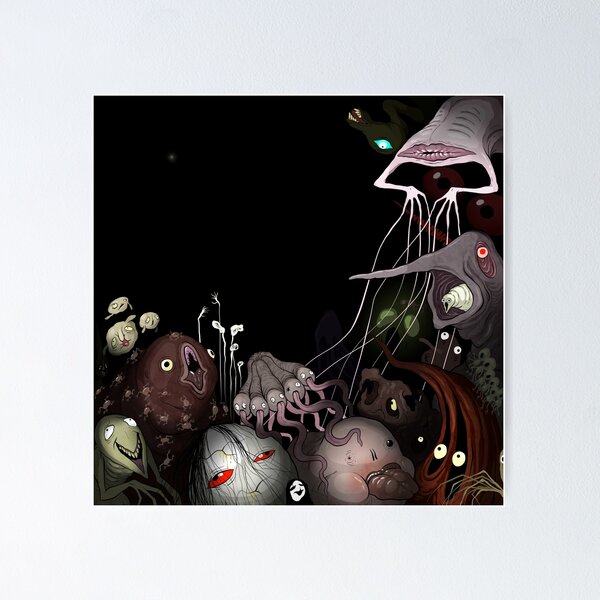Abyssal Allegories: Leviathan’s Deep Dive into Existentialism
Exploring the Depths of Existential Thought with Leviathan
In the vast ocean of philosophical ideas, existentialism stands as a powerful undercurrent, shaping the way we perceive existence and our role within it. One of the seminal works that plunges into the abyss of existentialism is Thomas Hobbes’ “Leviathan.” In this article, we will embark on a deep-sea journey, unraveling the allegories within Leviathan and delving into the existential depths it navigates.
The Leviathan’s Emergence: An Overview
To understand the allegorical depths of Leviathan, it’s crucial to grasp its historical and philosophical context. Published in 1651 during a tumultuous period of political upheaval, Leviathan reflects Hobbes’ response to the chaotic aftermath of the English Civil War. The title itself, drawing inspiration from the biblical sea monster, symbolizes the colossal power of the sovereign state.
Hobbes argues that in the “state of nature,” without governance, life would be “solitary, poor, nasty, brutish, and short.” The Leviathan, according to Hobbes, emerges as a social contract—a powerful, centralized authority to maintain order and prevent the descent into chaos. This foundational concept sets the stage for existential inquiries within Leviathan.
Existential Currents: Freedom and Individuality
Leviathan engages with existential themes by scrutinizing the tension between individual freedom and the need for a structured society. Hobbes’ vision of the Leviathan as a sovereign power mirrors the existential struggle to balance personal autonomy with the constraints of a social contract.
In the deep waters of existentialism, the question arises: Can true individuality coexist with a Leviathan-like authority, or does it risk being swallowed by the collective sea? Hobbes doesn’t shy away from these inquiries, challenging readers to reflect on the nature of freedom and the sacrifices inherent in social order.
Navigating the Abyss: Fear, Death, and the Human Condition
Existentialism often grapples with fundamental human fears, and Leviathan is no exception. Hobbes explores the pervasive fear that drives individuals to seek the protection of the Leviathan. This fear, rooted in the existential dread of a chaotic and uncertain world, propels the formation of social contracts and the surrender of certain freedoms for the sake of security.
In the dark abyss of Leviathan, the concept of death looms large—a specter that existentialists frequently confront. Hobbes confronts the mortality of humanity, portraying life as a constant struggle against the relentless current of time. The Leviathan, in this context, becomes both a shield against the fear of death and a reflection of the inevitable human condition.
The Leviathan’s Wake: Legacy and Critiques
As we resurface from the depths of Leviathan, it’s essential to examine its legacy and the critiques it has weathered. Hobbes’ work laid the groundwork for modern political philosophy, influencing thinkers like John Locke and shaping discussions on the nature of governance.
However, the Leviathan has not emerged unscathed. Critics argue that Hobbes’ vision neglects the complexities of human nature and the potential for cooperative, rather than purely competitive, social structures. The legacy of Leviathan remains a subject of scholarly debate, with ongoing discussions on its relevance in contemporary philosophical discourse.
FAQs (Frequently Asked Questions)
Q1: How does Hobbes’ Leviathan connect with existentialism?
A1: Hobbes’ Leviathan delves into existential themes by exploring the tension between individual freedom and the need for societal order. It addresses fundamental existential fears, such as the fear of a chaotic world and the inevitability of death, making it a significant work within the existentialist currents.
Q2: What is the significance of the Leviathan as a social contract in Hobbes’ philosophy?
A2: The Leviathan, in Hobbes’ philosophy, symbolizes the social contract—a powerful sovereign authority necessary to maintain order in the “state of nature.” It reflects the existential struggle to balance individual autonomy with the need for a structured society, sparking profound inquiries into the nature of freedom and the sacrifices it entails.
Q3: How has Hobbes’ Leviathan influenced modern political philosophy?
A3: Hobbes’ Leviathan has left an indelible mark on modern political philosophy, influencing subsequent thinkers such as John Locke. Its exploration of the role of government, the social contract, and the balance between individual freedom and societal order continues to shape discussions on governance and political theory.

